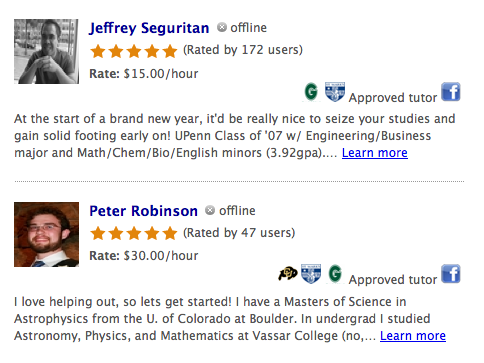E-learning concepts - Table of Content
E-learning
utopia?
 Learning Objectives
Learning Objectives
When you have completed this session, you should be able to
• Describe the changes which have happened in communications technologies over the past ten year,
• Register as an "online tutor",
• Describe alternative mechanisms for the application of copyrights.
Technological Forecasts
Communications
In November 1992 (15 years ago!), Scientific American published a special issue on communication, computers and networks [1]. Here is a quotation from the article by Michael L. Dertouzos, employee of MITI. The author predicted that:
|
 |
In 1992, then, this scenario seemed to be a utopia; today it is almost reality
According to researchers, the social effects of this change can only be compared to Gutenberg’s innovation of printing. Book printing made possible the accumulation and distribution of human knowledge on an industrial scale. Will the information age predict the end of the Gutenberg-Galaxy (https://en.wikipedia.org/wiki/The_Gutenberg_Galaxy)? This prospect, for many of us who were raised in the 20th century, does not seem to be so welcome.
History however may provide some peace of mind. On many occasions there has been the expectation of quick, and life-changing, benefits from various technical inventions. However over time, and after the early elation is over, there has been a realization that transformational change would take more time. The Japanese, for example, developed and published an information strategy in 1980 in which they defined innovations for the following ten years. Among these plans there were machine translation systems for spoken languages, solutions for speech recognition, and a 5th generation computer system with human-like artificial intelligence. After 30 years we are still waiting for truly intelligent, problem solving computers.
e-Learning Tutors
| At the portal at www.ziizoo.com different tutors are wanted for different subjects. After selecting a subject, a list of the teacher candidates is received. If he/she is available then contact can be made. After a short introduction, information can be received about the price of his/her lessons, the number of his/her students and about how his/her methods, teaching is evaluated by the students |
Information Society
In the information society, knowledge can become outdated very quickly. As learning is such a basic lifelong, requirement, information becomes an asset. Those who will produce and distribute information will exercise power.
E-business
Direct contacts can be established between the participants of an economy (purchasers - sellers, employers – employees, banks – clients) regardless of the distance. Electronic business (e-business) and remote working via Internet is expanding.
E-government
Recent regulations from ministries and governments can be readily posted to the Internet. More and more civic administration functions are based on the web. Citizens communicate via Internet with government agencies for taxation purposes, applications for higher educational institutions, applications for identification card, etc.
Everyday life
New technology is present everywhere in daily life. Households are ‘automated’ (automatic gates, monitoring and alarming systems, ovens operated by timers, etc.) as well as our personal administration (mobile banks, bankcard automats, job hunting on the net, buying theatre tickets, etc.). Traditional correspondence has in many cases been replaced by e-mail. Keeping contact with acquaintances who live abroad is now arguably best done via computers and Internet. Using software (e.g. Windows Messenger) we are able to transmit live pictures and voices – something not possible by telephone.
Copyright
However protecting copyright is becoming more and more difficult as the world becoming more electronic. Illegal distribution of music CDs, films, software, causes serious problems throughout the world.
There are alternatives to copyright protection though; it is possible to donate your rights to the world, while protecting it from exploitation by individuals and corporations.
"A Creative Commons License" is a license created by an American nonprofit institution which offers such a new alternative. Instead of using strict, and difficult to enforce, legal systems it provides the potential for creators to offer their products to others with some self-determined limitations.
creativecommons.org
Creators can select the suitable CC category on a web page and so determines this way with what conditions will it be permitted to use the product. One of these types of CC categories is Attribution Share Alike. Look at the image below:

Culture, Science
More and more libraries, museums, art galleries present their collection on the worldwide web. News, TV programs, music, films can all be accessed through the Internet.
More and more universities and collages make their syllabuses and lessons public on the Internet and there is no limitation for getting a “real” degree in the virtual space of some American universities (provided that we speak English well enough and can pay for the tuition).
 Exercise
Exercise
1. Visit the web site of www.ziizoo.com. Would it be a good idea to create some service like this in your area? Would you participate in it, for example by taking students on over the web? Write a report on this web site in your learning diary.
2. What do you think of Creative Commons – would you be likely to apply it to your own intellectual property? If we had a common online lesson database would you publish your own tools with some of the “Share alike" licenses? Has your country already joined Creative Commons (see creativecommons.org). Write a report on CC in your learning diary!
References
1. Scientific American, November Special Issue “Communication, Computers and Networks”, 1992.